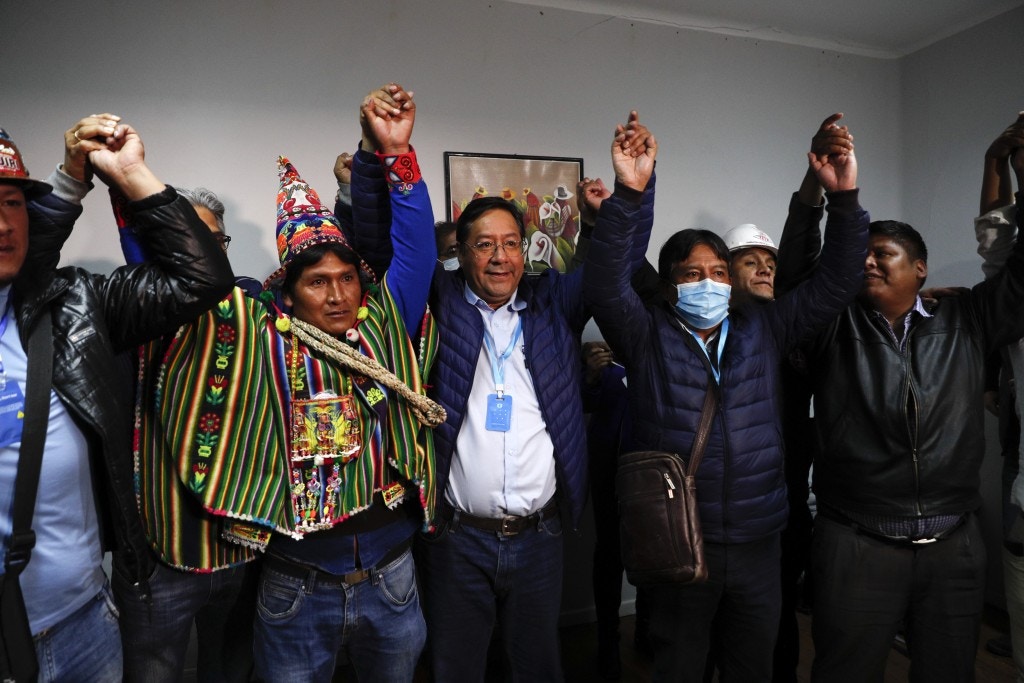
In November 2019, Bolivia’s three-term President Evo Morales was forced under threat of police and military violence to flee to Mexico, just weeks after he was declared the winner of the October presidential election that would have sent him to his fourth term. Installed in his place was an unelected right-wing coup regime, led by self-declared “interim President” Jeanine Áñez, who promptly presided over a military massacre that killed dozens of Morales’s Indigenous supporters and then granted immunity to all the soldiers involved. U.S. Secretary of State Mike Pompeo at the time cheered the coup by citing subsequently debunked claims of election fraud by the Organization of American States, or OAS, and urging “a truly democratic process representative of the people’s will.”
But after the Áñez regime twice postponed scheduled elections this year, Bolivians went to the polls on Sunday. They delivered a resounding victory to presidential candidate Luis Arce, Morales’s former finance minister and the candidate from his Movement Toward Socialism, or MAS, Party. Although official results are still being counted, exit polls from reputable firms show Arce with a blowout victory — over 50 percent against a centrist former president and a far-right coup leader — and Áñez herself conceded that MAS has won: “We do not yet have an official count, but from the data we have, Mr. Arce and [MAS Vice Presidential candidate] Mr. Choquehuanca have won the election. I congratulate the winners and ask them to govern with Bolivia and democracy in mind.”
It is difficult to remember the last time a U.S.-approved military coup in Latin America failed so spectacularly. Even with the U.S.-dominated OAS’s instantly dubious claims of electoral fraud, nobody disputed that Morales received more votes in last October’s election than all other candidates (the only question raised by the OAS was whether his margin of victory was sufficient to win on the first round and avoid a run-off).
Despite Morales’s election win, the Bolivian police and then military made clear to Morales that neither he, his family, nor his closest allies would be safe unless he immediately left the country, as Morales detailed in an interview I conducted with him just weeks after he was driven into exile in Mexico City. In that interview, Morales blamed not only the U.S. for giving the green light to right-wing coup leaders but also attributed the coup to Western anger over his decision to sell some of the country’s valuable lithium supply to China rather than to the West…

